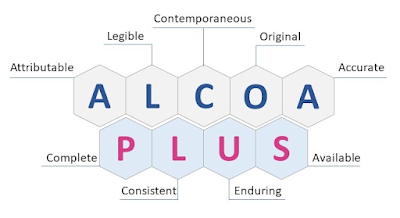With the introduction of the Pharma 4.0 guidelines, the pharmaceutical industry has been undergoing a sea change when it comes to embracing new technology. The industry understands how process automation can completely change the way businesses are run and how it enables them to optimize processes, improve data collection and storage, deliver higher quality than ever at significantly lower costs, and at a considerably reduced time-to-market.
Process automation has also transformed warehousing in the pharmaceutical industry. A vital part of the supply chain lifecycle, warehousing in the pharma industry is especially crucial given the strict regulatory quality and safety compliances demanded from the industry. It’s no wonder that pharma warehouses across the globe are becoming smarter with each passing day. Automated Warehouses are often equipped with Warehouse Management Systems to optimize daily processes.
Warehouse Management Systems (WMS)
Warehouse Management Systems are a set of tools and software that automate warehouse operations. They enable warehouse managers to have better control by automating daily processes such as storing, labeling, and tracking inventory, managing workers and their operations, analyzing captured data, and carrying out routine checks. WMS is seamlessly integrated into warehouse operations with no downtime required for installation, making them easy to adopt for any organization looking to opt for it. For the pharmaceutical industry, all WMS must be GMP and 21 CFR part 11 compliant solutions and meet all ALCOA+ requirements.
Benefits of warehouse automation
There are several benefits to automating warehouse operations. While some benefits, such as an increase in efficiency and a safer work environment, are immediately obvious, other benefits take a while to be noticed. For the sake of brevity of this article we have mentioned only seven benefits:
Improved Operational Efficiencyc
One of the biggest reasons why most pharma companies opt for warehouse automation is to improve their efficiency. It allows them to increase capacity and refine their processes thanks to the level of optimization possible with the latest technology in warehouse automation. Improved operational efficiency has a direct correlation with KPIs such as time, cost, quality, and productivity, which means it also has a huge positive impact on the business.
Minimized Errors
Automating warehouse processes reduces the chance of human error, which can be extremely dangerous in the case of a sensitive industry such as pharma, where stringent standards and complex regulations are to be met. Automating manual processes such as data collection, handling, and analyzing ensures that the information recorded is reliable and error-free. This can assist the pharmaceutical industry to meet stringent standards and complex regulations. Minimizing errors in a warehouse also benefits a company by reducing wastage and loss.
Optimized cost
While warehouse automation requires a company to invest first, the ROI on it is surprisingly quick. This is due to the fact that automation saves a lot of time and considerable cost through increased efficiency, optimized storage space, improved quality, higher productivity, and substantially minimized error, wastage, and loss. This is another reason why the pharma industry has witnessed a rise in the number of companies opting for warehouse automation solutions. Not only does deploying warehouse automation bring a competitive edge to a company but it also helps make greater margins of profit in the long run.
Better Quality Control and Assurance
Quality Control and Quality Assurance are of prime importance in the pharma industry, with numerous tests being carried out throughout the lifecycle of the product even while at the warehouse. The industry has greatly benefitted by automating all warehouse processes related to QA/AC, from sampling to labeling, to calibration and validation of the products. Warehouse automation is also convenient when it comes to the frequent quality audits that are typical to the pharma industry.
Improved Data Analytics and Integrity
Automating data collection and analysis has a number of benefits. First, a large amount of data can be collated, processed, and analyzed with precision, meaning that a large amount of data is gathered and processed accurately in a relatively short amount of time. Data Integrity is extremely critical in the pharma industry, owing to the strict standards and regulations that are to be met. It also helps during audits, when the people in charge are confident that the data is authentic and error-free.
Sustainability
An added advantage of adopting warehouse management solutions is that it enables business owners to achieve their environment-related goals. Automated warehouses optimize resource usage and space, reduce losses, and also enable considerable energy savings, which make it an excellent choice for businesses looking to attain their sustainability goals. The best part about automating warehouses is that sustainability comes as a natural by-product owing to the optimized performance that the use of technology enables. For more information, visit https://www.pharmision.barcodeindia.com/blogs/7-benefits-of-warehouse-automation-in-the-pharma-industry/












